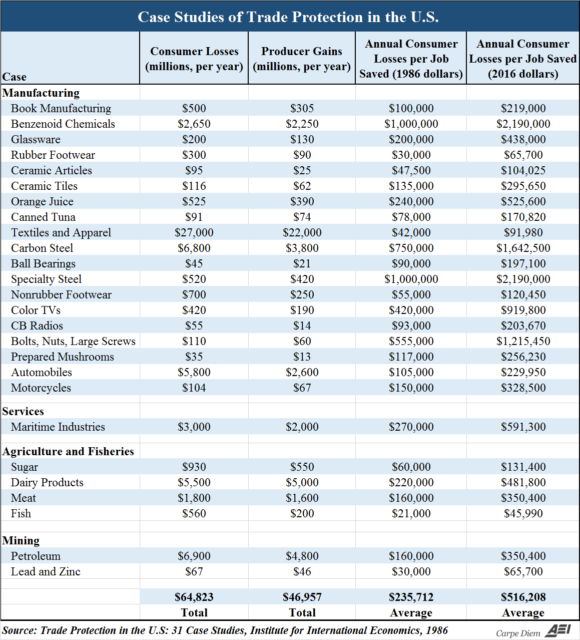Warren Meyer on the idiocy of Trump’s economic nationalist notions:
Think about the corollary of Trump’s economic nationalism, particularly if everyone followed this same approach. If one skews all the rules and taxes and prohibitions so everything must be sourced domestically, then if a country does not have some particular resource or skill domestically, it is out of luck. No domestic rare earth metals? Sorry.
But governments and powerful people seldom calmly accept that something they critically need is not available. They will be tempted to go and take it. The worst, most violent empire building of the last 100-150 years has occurred when countries have pursued economic nationalism. Think of the colonialism of the late 19th century. Today we happily trade with South Africa and other countries for valuable resources, but in that time of economic nationalism, if a country wanted access to these resources, it felt it had to control the land and the people. Hitler in the 1930’s wanted to make Germany self-sufficient in agricultural goods and certain other resources, and the only way to do that was to go and grab other people’s land and resources.
The best example of all of this phenomenon is, I think, Japan in the 1930’s. Japan felt that it was resource poor and under Trump’s theory of economic nationalism, it felt it had to control oil and other resources it did not have domestically. So it plotted to go take it. When the US instituted a trade embargo in these very goods to punish Japan’s aggressiveness in China, it just accelerated Japan’s thinking in this area, convincing it for good it had to control these resources, and it was soon invading the oil-rich islands of what is now Indonesia. This example is all the more telling because Japan actually found true prosperity after the war when it traded peacefully for these resources. Unfortunately, it adopted economic nationalism, via MITI, of another form and helped manage themselves into a 20-year recession, but that is another trade-related story for another day.




